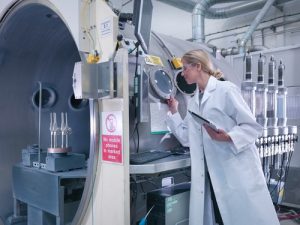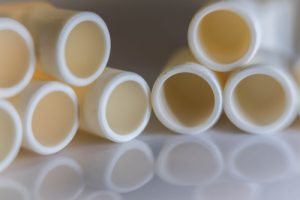Not many people know just how many industries use technical ceramics in their daily operations. Technical ceramics are a versatile compound that allows for many interesting applications throughout different industries. They were created to be suitable for many different uses.
You might not even be aware that your business might thrive if you choose to start working with one of the leading advanced technical ceramics manufacturers in the USA because you are unaware of the material’s versatility and have no idea that you can use technical ceramics in your own industry. It’s time to change that and take a closer look at all the industries that take advantage of specific traits of injection-molded ceramics.
What industries use technical ceramics?

Technical ceramics boast many incredible properties, such as excellent wear resistance, incredible thermal properties, high strength, low density, etc. This makes technical ceramics manufactured by reputable companies a more viable option across many industries
Solar industry
Technical ceramics, including aluminum oxide, are an extremely popular material in the solar industry. They are highly temperature and corrosion resistant, and are extremely hard-wearing.
It is these characteristics that make advanced technical ceramics companies key actors for manufacturing many different products in the solar industry, including: solar panels, solar collectors, solar cells, and solar batteries.
Aerospace industry
Technical ceramics possess many desirable properties that make them perfect for aerospace application. These properties include low weight, ultra-high-temperature resistance, corrosion resistance, chemical stability, electrical insulation, as well as excellent wear resistance.
When it comes to aerospace applications, advanced ceramics are mainly used for thermal protection shields, exhaust and engine systems, turbine components, as well as to provide structure to objects designed to fly at very high speeds.
Automotive industry
In the automotive industry, the excellent durability and the high-temperature resistance, among many other characteristics of technical ceramics, are the main reasons for their application. There are two basic types of industrial ceramic components in the automotive industry:
- Functional ceramics – Technical ceramics are used in functional components, such as oxygen sensors, sparks, glow plugs, knocking sensors, PTC heaters, parking distance control, fuel injection systems, etc.
- Structural ceramics – Technical ceramics are used in the manufacturing of automotive structural components such as brake discs, catalyst support, pump components, particulate filters, etc.
Electronics industry
This $4.5 trillion industry wouldn’t exist without ceramic mold manufacturing companies. Virtually all of the electronic devices you own, such as computers, smartphones, and TVs, have ceramic components in them. The insulating, as well as semiconducting, superconducting, magnetic, and piezoelectric properties make advanced ceramics indispensable in the electronics industry.
You can find technical ceramics in capacitors, inductors, circuit protection devices, displays, and audio systems, as well as many other parts of many other electronic devices. There would be no modern electronics without technical ceramic parts.
Oil & gas industry
Oil and gas equipment has to be able to perform optimally in corrosive and abrasive environments. That is why technical ceramics are ideal for such use. Technical ceramics boast the ability to work in high temperatures and under great pressure, making them perfect for this industry.
Plus, due to the high customizability of ceramics and the versatility this offers, an experienced technical ceramics manufacturer is able to produce a compound with properties suitable for the projected use. This makes technical ceramics a great choice for the majority of oil and gas industry demands.
Healthcare industry
The sterile nature of advanced ceramics, as well as their resistance to wear and natural chemical inertness makes them an ideal choice for use in the medical industry. Technical ceramics are found in:
- Medical sensors
- Medical implants
- Dental implants
- Hearing implants
- Artificial knee joints and hips
- Heart pumps and pacemakers
- Drug delivery devices
Food service industry
Technical ceramics possess food-safe properties, which means they are a great choice for the food service industry as well. You can find ceramics in dosing units, dosing slides, valve guides and seats, limit stops and grippers, as well as forming tools. This is what makes ceramics manufacturing companies essential for this industry.
Energy industry
Parts produced by industrial ceramics manufacturers have a wide application in the energy industry due to their unique combination of electrical and thermal properties. Their high thermal conductivity, mechanical strength, and resistance to corrosion make them ideal for batteries and thermal insulation. They can also be used as high-temperature coatings and components in gas and steam turbines where they can increase efficiency.
Defense industry
The materials made by advanced technical ceramics companies feature a high strength-to-weight ratio, the ability to withstand extreme conditions, and excellent ballistic properties. These characteristics make them suitable for armor systems, missile guidance systems, radar components, and communication systems. They can also be used in cutting tools, wear-resistant components, and other applications from personal protection to advanced technology systems.
Environmental industry
Companies that manufacture aluminum oxide and zirconia advanced technical ceramics are essential for the environmental industry. Components created with this manufacturing process are used in air and water purification systems and filters due to their high chemical and thermal stability and excellent mechanical strength.
Technical ceramics can also be used in flue gas desulfurization systems, scrubbers, reactors, and waste management systems where they provide resistance to corrosion and abrasion, insulation, and protection against chemical and thermal degradation.
What professions use ceramics?
Technical ceramics companies produce a whole range of products used by professionals in different fields, such as:
- Design engineers, who are looking for innovative ways to leverage the strengths of technical ceramics and broaden the scope of their application.
- Application engineers, who incorporate advanced ceramics into specific products across a diverse range of industries, from medical to automotive and electronic.
- Healthcare professionals, such as orthopedic surgeons, prosthodontists, and orthodontists, use technical ceramics made by manufacturers in the USA for their procedures.
- Artists and fashion designers also use high-tech ceramics in some of their popular products and with great success, as proven by Chanel way back in 2000.
What is the difference between advanced ceramics and technical ceramics?
From a functional perspective, there is no difference between advanced and technical ceramics manufactured by companies in the USA. The terms are often used interchangeably to describe ceramics that feature exceptional thermal, mechanical, electrical, or chemical properties.
However, they may be used slightly differently:
- Technical ceramics (a.k.a. “high-tech ceramics”) describes ceramics manufactured for applications in high-tech settings, such as those utilized by electronics and avionics industries.
- Advanced ceramics, on the other hand, is more of a general term, which encompasses a broader range of materials and their applications, including technical.
How big is the technical ceramic market?

Who are the largest ceramics manufacturers?
When it comes to the global representation of advanced ceramics companies, the situation is as follows:
- Pacific Asia currently dominates the market. To no one’s surprise, Japan is leading the charge, followed closely by China, India, and South Korea.
- North America is keeping pace with the Asian countries, with the US at the forefront and Canada right behind.
- Europe takes the third place on the global scene, with the UK, Germany, and France being the most prominent technical ceramics manufacturers on the continent.
North America is expected to register the highest growth in the advanced ceramics sector in the next decade, both in terms of production and application, which means there’s a realistic possibility of outpacing Asia and becoming #1 on this list.
Who are the leaders among technical ceramics manufacturing companies in the USA?
No matter if you’re in the oil and gas, aerospace, or electronics industry – you need the highest-quality components made from technical ceramics. If you want to ensure dependability and durability, you need to partner with an experienced technical ceramics manufacturer such as Wunder-Mold. We have been in the ceramic injection molding industry for more than twenty-five years, and are overachievers when it comes to quality.
We continue to base our operations on our philosophies and principles that include precise and timely performance, incessant striving for excellence and quality, integrity, honesty, outstanding customer service, and unmitigated professional ethics.
As a top-rated ceramic mold company, we specialize in a range of plastic and ceramic materials, including Zirconia and Alumina, to produce high-quality parts with demanding tolerances and dimensions.
Whatever your needs may be, our engineering professionals will be able to work with your company at all stages of your project: prototyping, refactoring, rigorous quality control process, pilot testing, and production. Reach out to us at sales@wundermold.com, or call (707) 448-2349.

